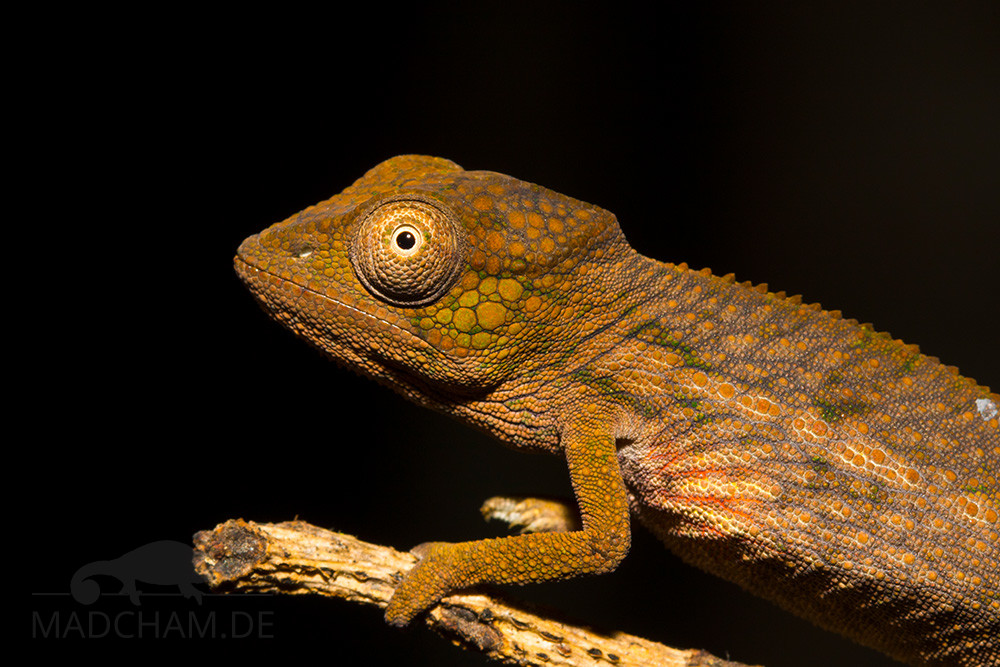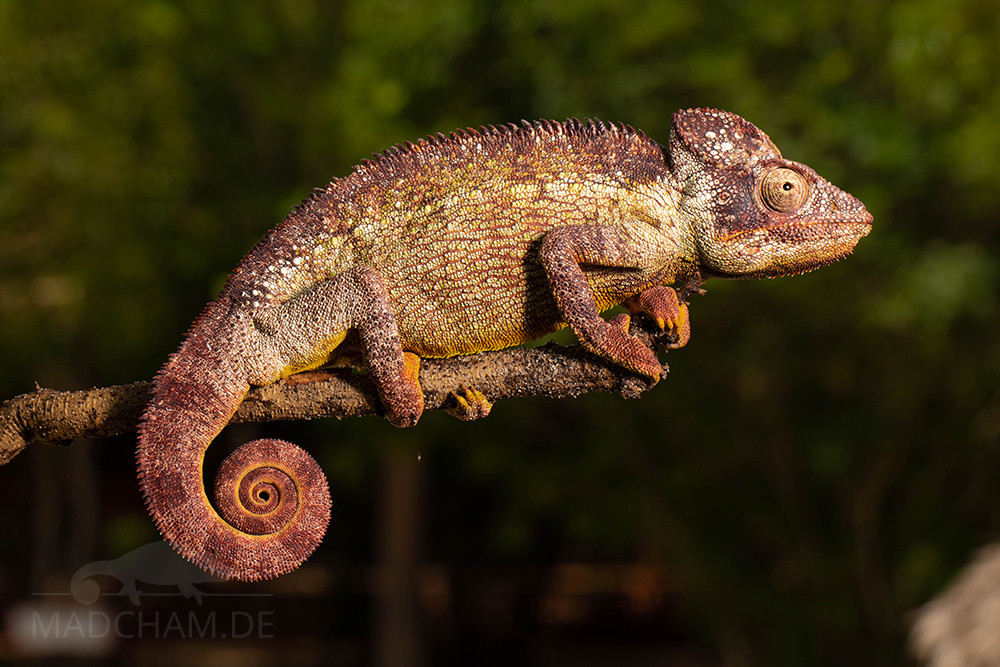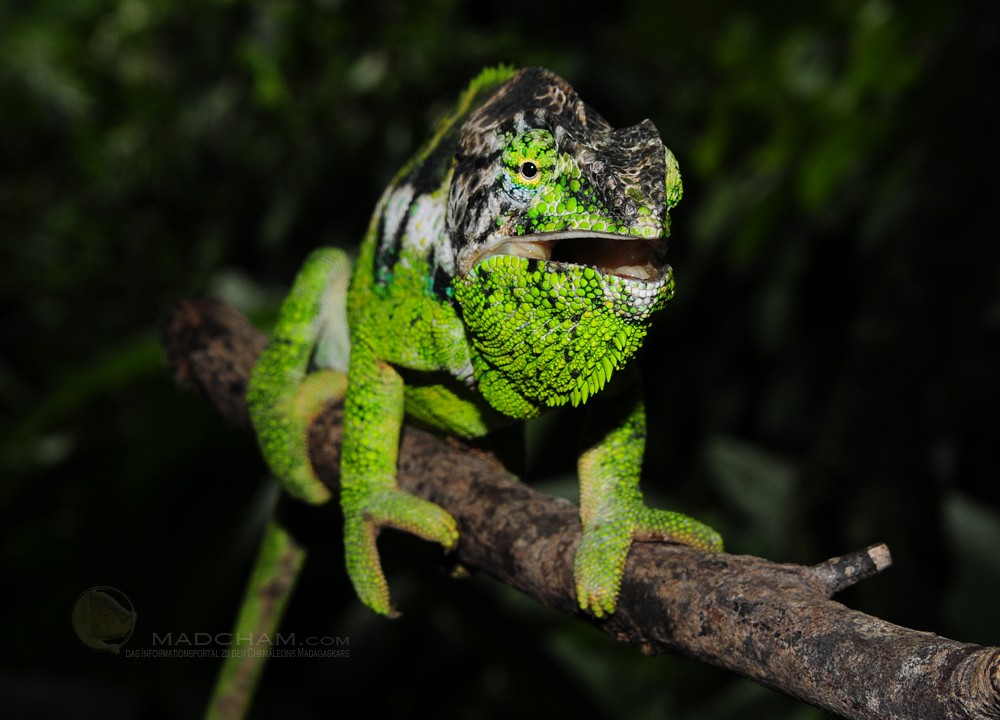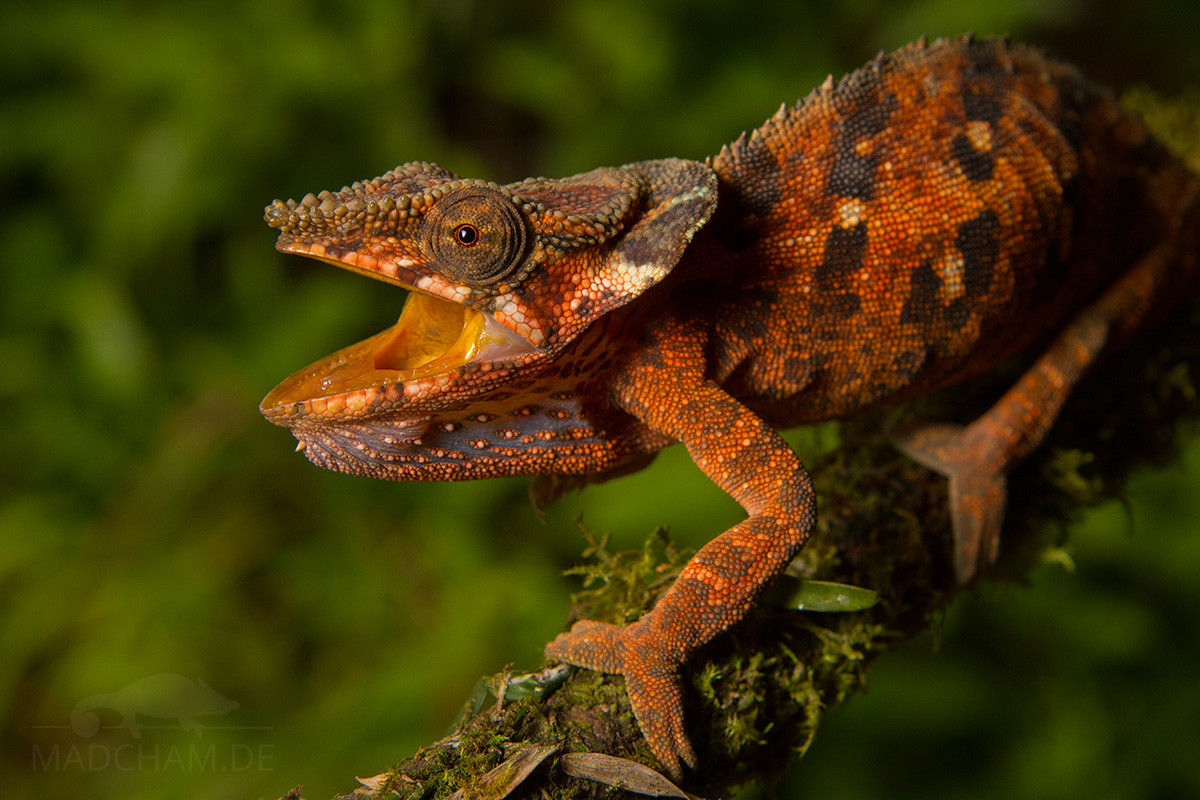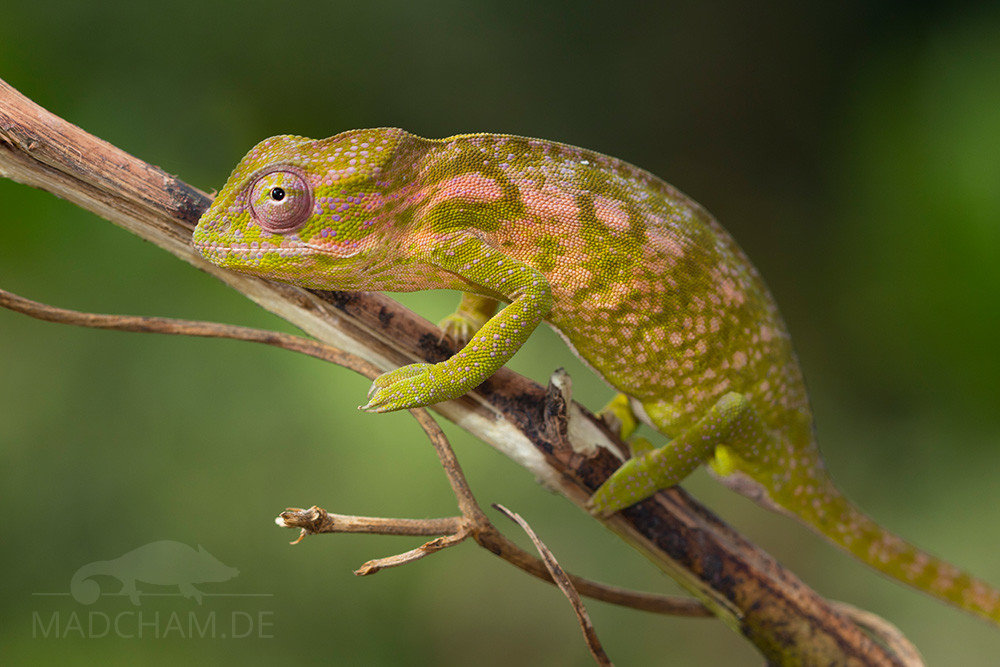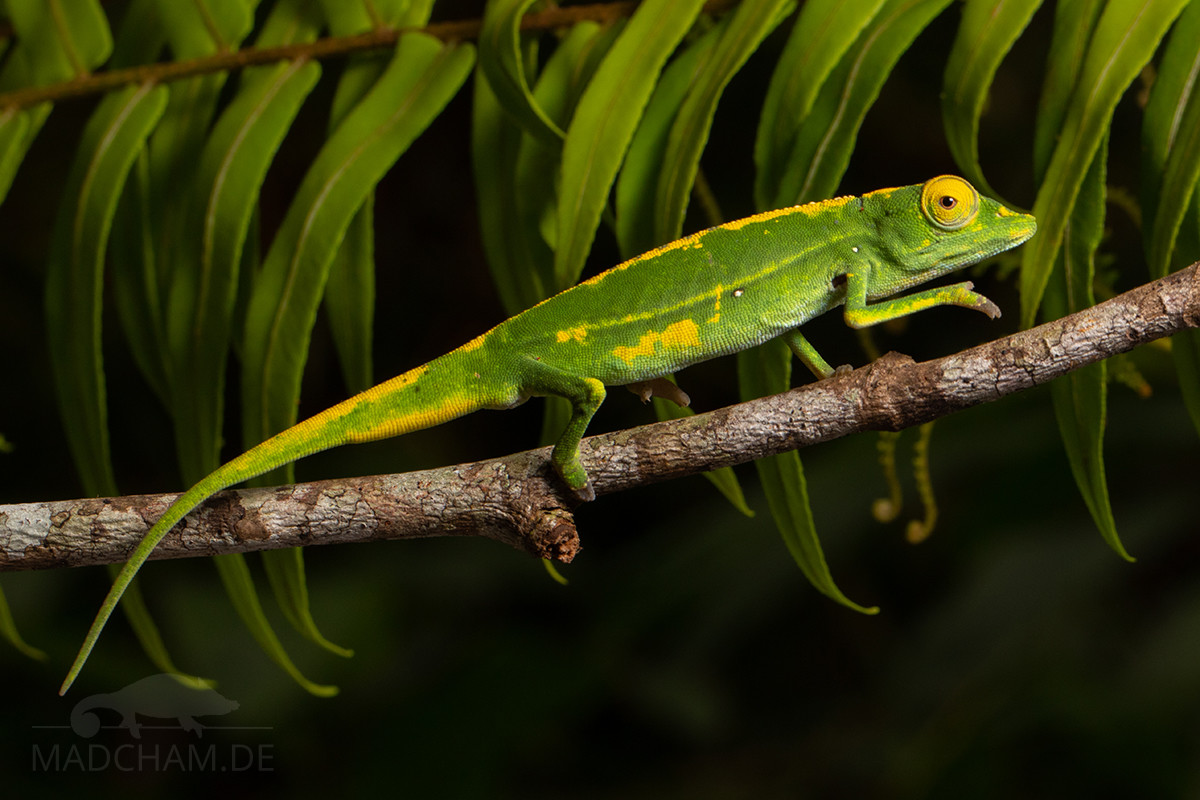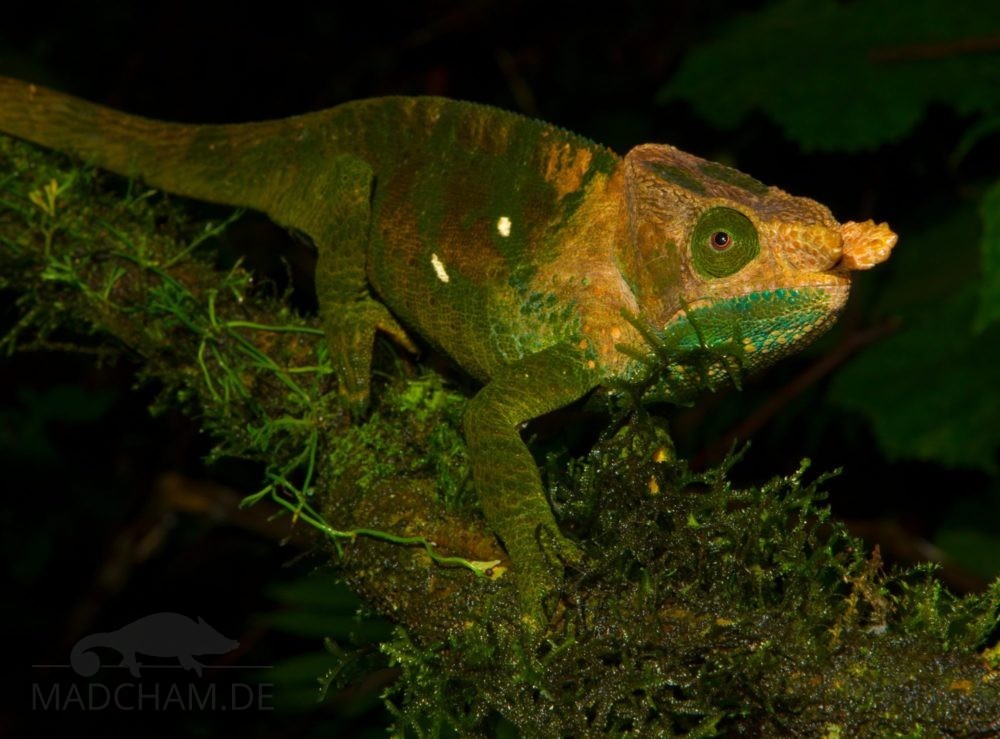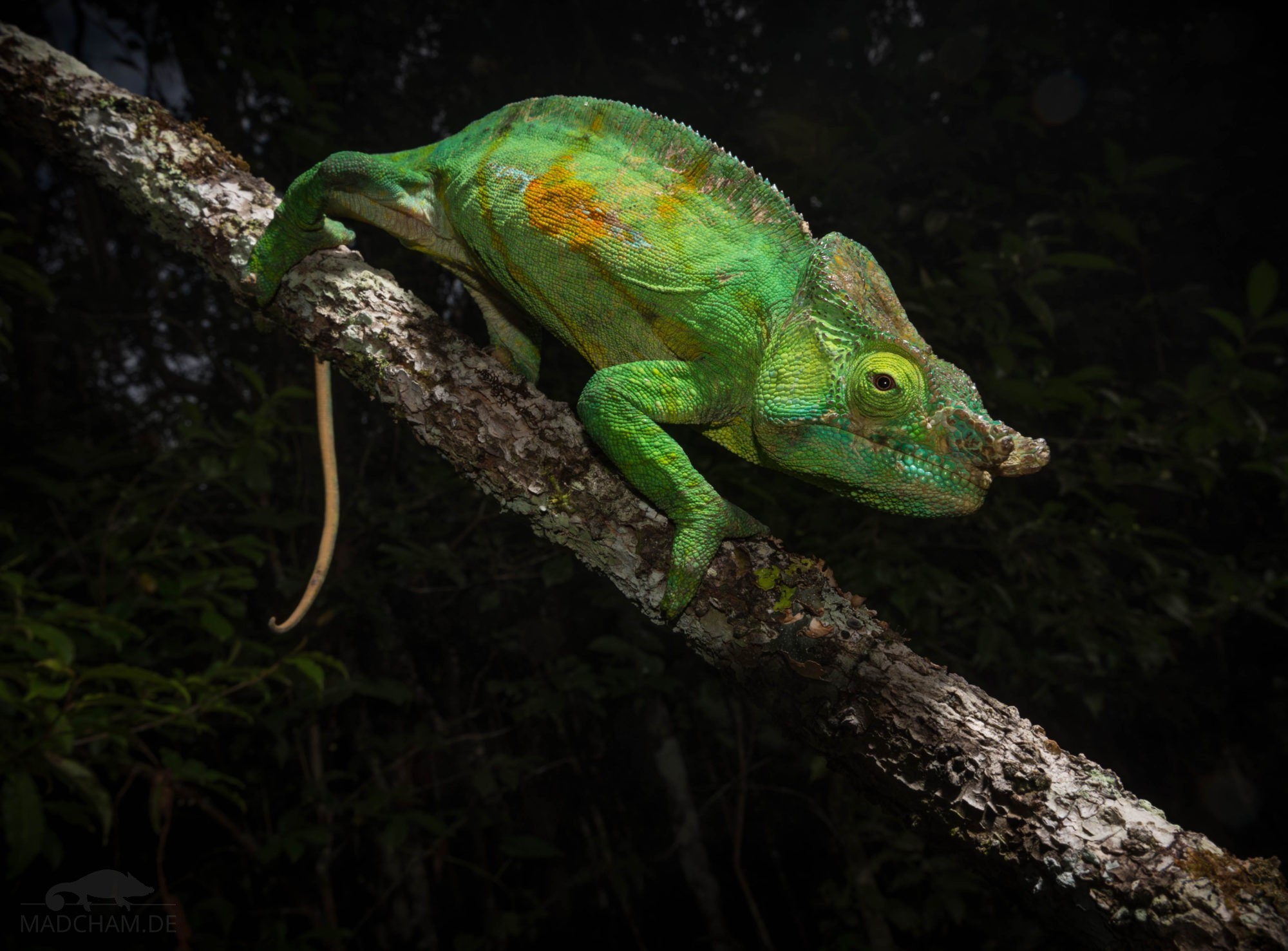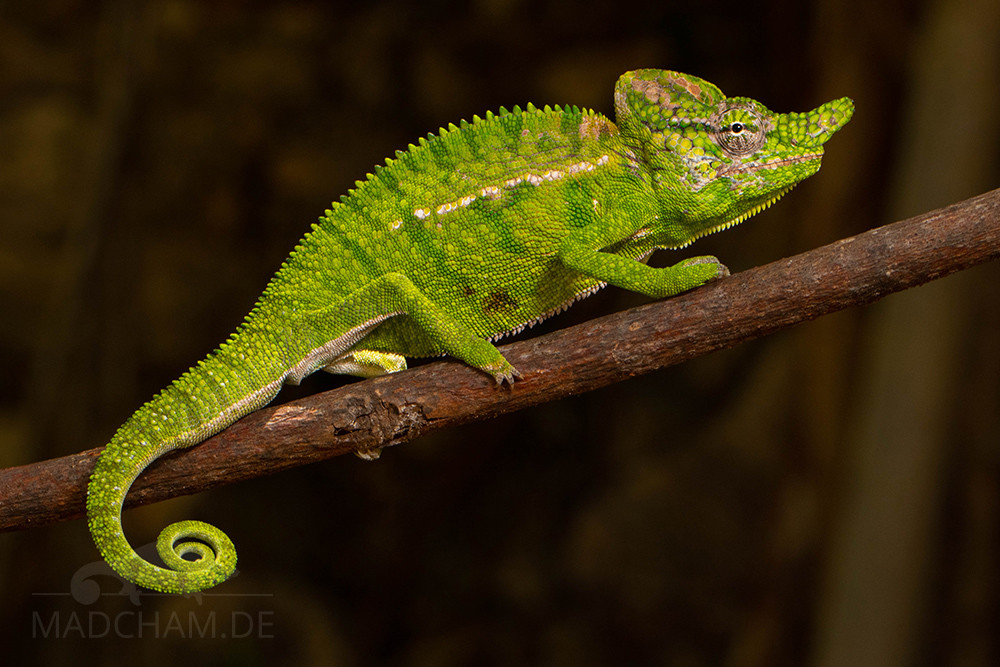Furcifer nicosiai
First description: Jesu, Mattioli & Schimmenti, 1999 Origin of the species name: The three Italian biologists Riccardo Jesu, Fabio Mattioli, and Giovanni Schimmenti from the Aquarium Genoa (Italy) dedicated the species to Guido Nicosia,...
Furcifer oustaleti
First description: (Mocquard, 1894) Origin of the species name: The zoologist François Mocquard of the Natural History Museum in Paris (France) received chameleons in the 1890s from M. Catat, the entomologist Charles Alluaud and...
Furcifer petteri
First description: (Brygoo & Domergue, 1966) Origin of the species name: In 1966 the zoologists Édouard-Raoul Brygoo and Charles Antoine Domergue from the Natural History Museum in Paris (France) received several reptiles. They had...
Furcifer verrucosus
First description: (Cuvier, 1829) Origin of the species name: The French zoologist and palaeontologist Georges Léopold Chrétien Frédéric Dagobert Baron Cuvier founded the largest anatomical collection in Europe at the University of Paris (France)....
Calumma malthe
First description: (Günther, 1879) Origin of the species name: The German zoologist Albert Carl Ludwig Gotthilf Günther, then Director of the Zoological Department of the Natural History Museum of London (Great Britain), named Calumma...
Furcifer viridis
First description: Florio, Ingram, Rakotondravony, Louis & Raxworthy, 2012 Origin of the species name: The biologists Antonia M. Florio, Colleen M. Ingram from the Natural History Museum in New York (USA), Hery A. Rakotondravony...
Calumma marojezense
First description: (Brygoo, Blanc & Domergue, 1970) Origin of the species name: The zoologists Édouard-Raoul Brygoo, Charles Pierre Blanc and Charles Antoine Domergue of the Institut Pasteur in Antananarivo, Madagascar, named the species after...
Calumma oshaughnessyi
First description: (Günther, 1881) Origin of the species name: The German zoologist Albert Carl Ludwig Gotthilf Günther, then Director of the Zoological Department of the Natural History Museum of London (Great Britain), gave only...
Calumma parsonii cristifer
First description: (Methuen & Hewitt, 1913) Origin of the species name: The English zoologist Paul Ayshford Methuen, 4th Baron Methuen, and the South African zoologist John Hewitt gave this subspecies of the Parsons Chameleon...
Furcifer voeltzkowi
First description: Boettger, 1893 Origin of the species name: The paleontologist Oskar Böttger, then curator of the Senckenberg Museum in Frankfurt am Main, dedicated this chameleon species to the German zoologist Alfred Voeltzkow....

